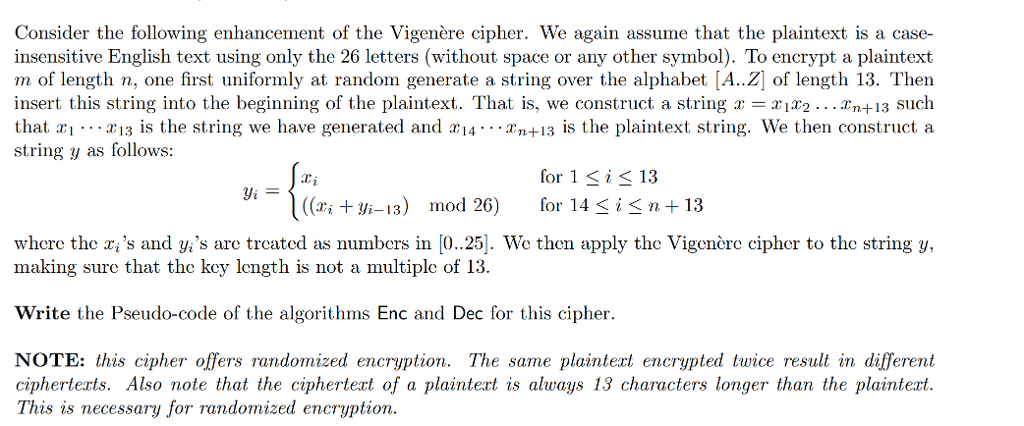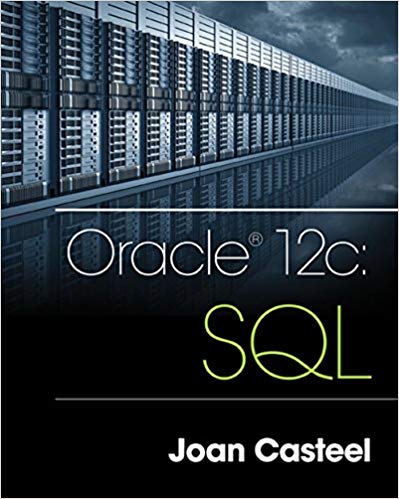Question
Consider the following enhancement of the Vigen`ere cipher. We again assume that the plaintext is a caseinsensitive English text using only the 26 letters (without
Consider the following enhancement of the Vigen`ere cipher. We again assume that the plaintext is a caseinsensitive English text using only the 26 letters (without space or any other symbol). To encrypt a plaintext m of length n, one first uniformly at random generate a string over the alphabet [A..Z] of length 13. Then insert this string into the beginning of the plaintext. That is, we construct a string x = x1x2 . . . xn+13 such that x1 x13 is the string we have generated and x14 xn+13 is the plaintext string. We then construct a string y as follows: yi = ( xi for 1 i 13 ((xi + yi13) mod 26) for 14 i n + 13 where the xi s and yi s are treated as numbers in [0..25]. We then apply the Vigen`ere cipher to the string y, making sure that the key length is not a multiple of 13. Write the Pseudo-code of the algorithms Enc and Dec for this cipher. NOTE: this cipher offers randomized encryption. The same plaintext encrypted twice result in different ciphertexts. Also note that the ciphertext of a plaintext is always 13 characters longer than the plaintext. This is necessary for randomized encryption.
Step by Step Solution
There are 3 Steps involved in it
Step: 1

Get Instant Access to Expert-Tailored Solutions
See step-by-step solutions with expert insights and AI powered tools for academic success
Step: 2

Step: 3

Ace Your Homework with AI
Get the answers you need in no time with our AI-driven, step-by-step assistance
Get Started


